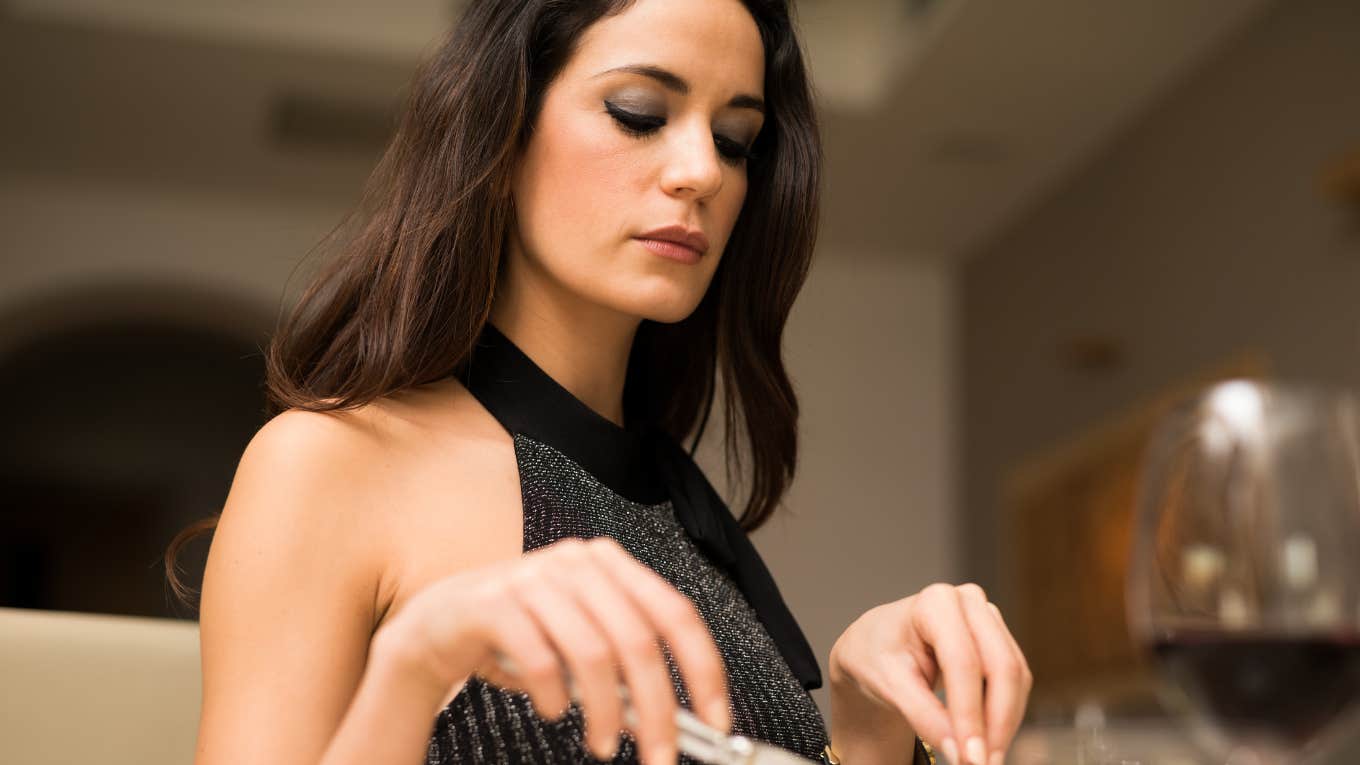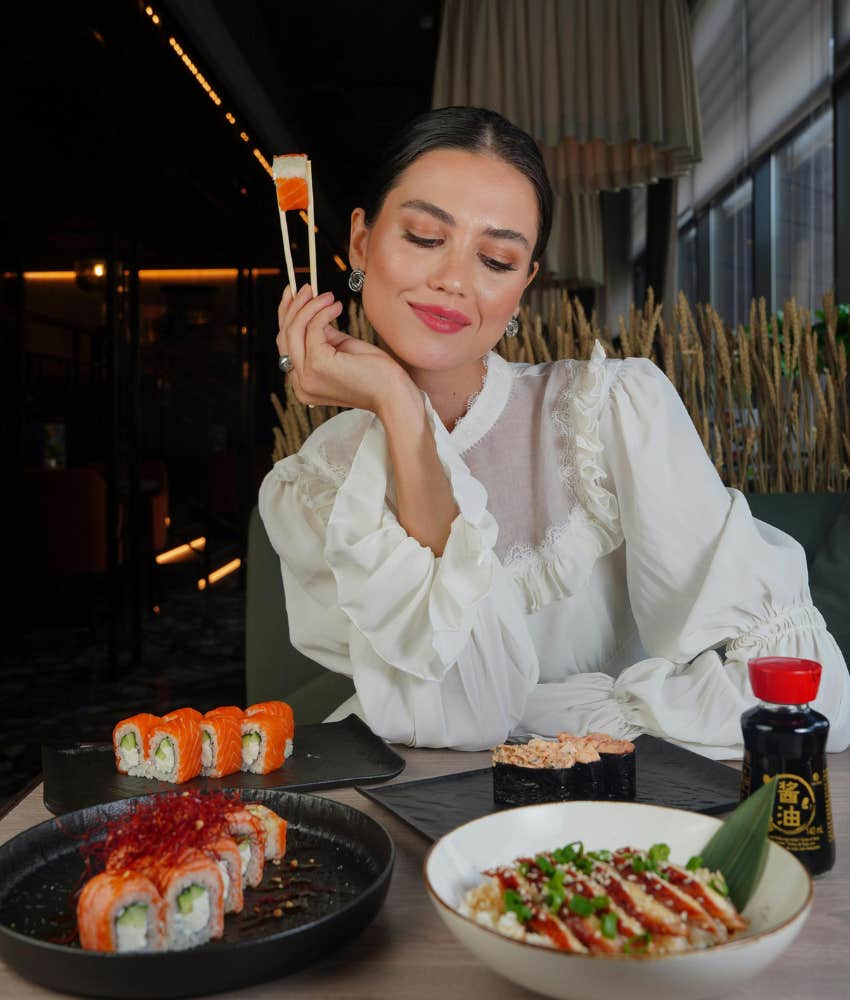Woman Refuses To Make Eye Contact With Or Speak To Service Staff At Restaurants As Part Of Her ‘Princess Treatment’
Is this something a princess would do?
 Minerva Studio | Shutterstock
Minerva Studio | Shutterstock In a way, we also want to be treated like princesses in our relationships. Chivalry says that men should open doors, give us flowers, and make us feel safe. You still can be an independent woman while also receiving care and love from your partner. However, one woman shared how she views "princess treatment" in her own relationship, which some think is taking it a bit too far.
A woman explained why she doesn't make eye contact with or speak to service staff as part of her 'princess treatment.'
TikTok housewife Courtney Joelle (@jojoejoelle) posted a video detailing how she receives "princess treatment" while out dining. She said, "If I am at a restaurant with my husband, I do not talk to the hostess, I do not open any doors, and I do not order my own food."
 Nadin Sh | Pexels
Nadin Sh | Pexels
Courtney lets her husband handle all exchanges with service staff at restaurants, including hosts and waitstaff, and if they try to interact with her, she lets her husband answer for her. If he isn't present, she simply waits for him to return. She explained that, "I want him to order for me. I like when he orders for me. It's not that I'm not capable of ordering for myself."
She also argued that "It's not in any sense that you're better than the hostess, you're just letting your husband lead and be masculine. He made the reservation, he's taking you out, let him do the logistics." Courtney sees "princess treatment" as something that makes her feel special and taken care of, and that she doesn't find it necessary to "overexert" herself by talking to service staff.
The video garnered an overwhelming amount of criticism, with several service workers sharing their perspectives.
Many commenters said that, as a service worker, they would be extremely concerned for her well-being. A user wrote, "As a former server if I saw this I’d genuinely be concerned that it was a case of domestic violence."
Others thought it came across as downright rude despite her intentions. Another user stated, "As someone who took etiquette classes as a kid. You can be a 'princess' and still talk and be respectful. You are kind and respectful to all staff because it is expected for you to be personable and seen as a lady. It’s unladylike to ignore anyone."
One user compared this "princess treatment" to how actual princesses act, saying, "Right so remember how Princess Diana was called 'the people's Princess' and was really well loved and respected by her community?? real princesses have independence and communication skills."
 sirtravelalot | Shutterstock
sirtravelalot | Shutterstock
In an opinion piece written for The Gazette, Marija Janeva took on the topic of princess treatment and pointed out why it doesn't sit right with so many. She wrote, "A high-value woman is expected to be quiet, agreeable, and polished — her worth is defined by how much she erases her own thoughts and opinions, becoming a passive decorative plus-one.
In return, the princess does not drive, work, or bring her wallet — she receives gifts and lives in a custom-made dollhouse that she can inhabit, but never own."
Janeva stressed that pampering a partner is not problematic, but, as she explained, "The online narratives of princess treatment encourage and promote the idea that women need to be passive and attended to, rather than empowered and treated with respect and care while having agency in their relationships."
While there's nothing wrong with wanting to be attended to and cared for in a relationship, expecting the 'princess treatment' can cause unexpected problems.
The narratives of princess treatment can sometimes promote the idea that women should be passive and co-dependent in relationships. The many inequalities that women are fighting against every day are glamorized, such as a lack of autonomy and freedom.
Dating coach Sabrina Zohar said that "princess treatment isn't romantic, it's a socially accepted way to avoid being an adult in a relationship." She explained that, when you expect someone to anticipate your every need, "psychologically it keeps you stuck in arrested development where you will continue to act like a child with your partner."
Zohar emphasized that "reciprocal care" is the key to building and maintaining a healthy relationship. Giving your partner mutual attention and care that they give you in return makes them feel respected and valued, and sets up a lasting relationship full of love.
Kayla Asbach is a writer currently working on her bachelor's degree at the University of Central Florida. She covers relationships, psychology, self-help, pop culture, and human interest topics.

